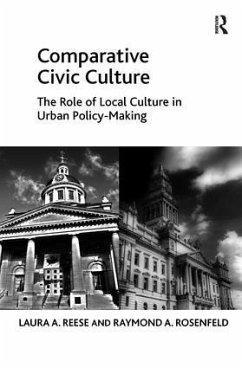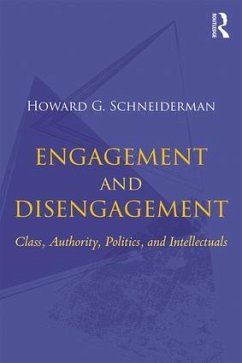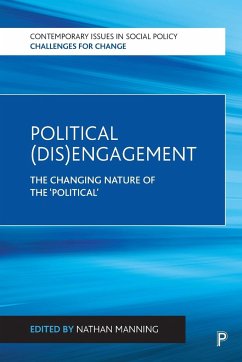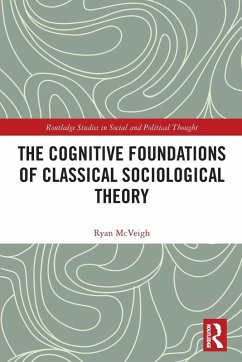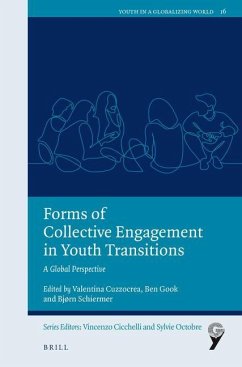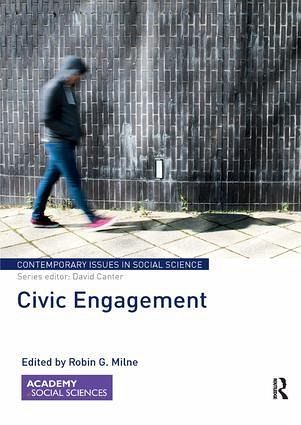
Civic Engagement
Versandkostenfrei!
Versandfertig in 1-2 Wochen
54,99 €
inkl. MwSt.
Weitere Ausgaben:

PAYBACK Punkte
27 °P sammeln!
Civic engagement in this book is understood to include attendance at booked National Health Service appointments; compulsory attendance at school; the take-up of a variety of State benefits in cash and kind, such as Pension Credit and free school meals; and attendance at work. This book is the outcome of a collaborative exercise, in which specialists in a variety of disciplines have come together to better understand the state of civic engagement in the fields of health, education, social security, and employment. Their research is drawn primarily from the British experience, but the phenomena...
Civic engagement in this book is understood to include attendance at booked National Health Service appointments; compulsory attendance at school; the take-up of a variety of State benefits in cash and kind, such as Pension Credit and free school meals; and attendance at work. This book is the outcome of a collaborative exercise, in which specialists in a variety of disciplines have come together to better understand the state of civic engagement in the fields of health, education, social security, and employment. Their research is drawn primarily from the British experience, but the phenomena studied are international in scope. Generally, civic engagement has been improving, but in certain areas there are serious gaps that still need addressing. Administrative arrangements are shown to reduce absence for booked appointments, without necessarily making referred patients more or less likely to attend. A variety of measures are suggested for truancy, and the take-up of social security benefits faces a number of issues. Work absence attributed to sickness is at least partly viewed as a psychosocial problem. Economic analysis shows the importance of incentives, and the potential cost of changing from selective to the universal provision of free school meals. Taken together, the sociological analysis in the book highlights the fragmentation of society and its consequences for civic engagement. This book was originally published as a special issue of Contemporary Social Science.






